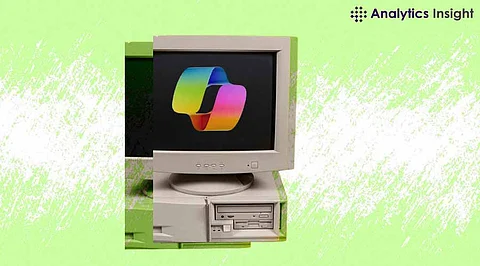

Microsoft's forays into artificial intelligence have placed Copilot and Agents as key drivers of business transformation in 2025. These artificial intelligence-based offerings, integrated throughout Microsoft's stack, simplify processes, improve decision-making, and reshape workforce productivity.
From Copilot within Microsoft 365 to independent Agents in Dynamics 365, all these technologies face today's business challenges head-on. This piece discusses how and where they do this, use, and influence businesses up until March 27, 2025.
Copilot are AI-based built-in assistants in the range of applications within Microsoft tools like Word, Excel, PowerPoint, and Teams. It was released in 2023 and developed up to 2024, and these assistants leverage big language models in order to process natural language requests for real-time suggestions and task automation. In Word, the Copilot write documents based on the short descriptions, whereas in Excel, they interpret data sets and create charts without writing down the formula.
PowerPoint is enhanced by automated slide generation, and Teams benefit from meeting summaries and action item tracking. This integration eliminates redundant work, enabling employees to concentrate on strategic initiatives. Microsoft's 2024 Work Trend Index data shows a 30% productivity gain among early adopters, thanks to time saved on mundane tasks. Copilot acquire user habits, with increasingly refined outputs, therefore more useful in industries such as finance, health, and consumer goods.
Agents, introduced late 2024 as the latest innovation, go beyond as a support into independent action within Dynamics 365 and Power Platform.
Based on Microsoft's Azure AI, Agents integrate reasoning power with enterprise-specific information, making context-aware decisions. A 2025 case study of a global retailer illustrated a 25% decrease in order processing time following the implementation of Agents, demonstrating their ability to revolutionize operational efficiency. Their autonomy represents a transition from reactive to proactive business processes.
Copilot and Agents are both masters at distilling massive quantities of data into practical recommendations. Copilot in Power BI translate numbers to images and narratives, enabling executives to grasp trends immediately. Agents extend this with real-time KPI monitoring, anomaly detection, and recommending adjustments. For example, a manufacturing company saw its downtime drop 15% following Agents' identification of early signs of equipment failures.
This data-centric strategy enables leaders to make decisions quicker, informed by data, a key competitive edge in competitive markets. With integration into Microsoft Fabric, an end-to-end analytics platform, this functionality is enhanced, uniting disparate data sources for end-to-end visibility. With these capabilities, organizations can rapidly react to shifts in supply or demand.
Adoption of Agents and Copilot requires upskilling the workforce. Microsoft's 2025 training programs, such as Copilot Academy, are designed to close the gap, educating employees on how to properly use AI. Resistance remains in industries with deeply ingrained manual procedures, such as manufacturing and law, where confidence in AI is low. Early 2025 revealed that 40% of mid-level managers were reluctant to adopt, claiming fear of job loss.
In contrast, progressive companies document cultural transformation, with employees welcoming AI as a partner and not a menace. Successful transformations depend on the open communication of advantages: time gains, mistake reduction, and practical training. Companies that invest in this transformation realize increased engagement and innovation levels within teams.
Copilot and Agents customize solutions for industry requirements. In the health sector, Copilot interpret patient notes within Microsoft 365, while Agents in Dynamics 365 arrange appointments according to the availability of physicians and medical histories of patients. Retail takes advantage of Agents adjusting pricing mechanisms, and banking applies Copilot to write compliance reports. One logistics provider registered a 20% decrease in fuel expenditure once Agents dynamically diverted deliveries.
This tailoring forces industry-specific efficiency, matching AI potential with singular operating requirements. Microsoft's strategic alliances with leaders in their markets, such as SAP and Salesforce, also contribute to compatibility, extending the range of tools.
Forward to late 2025 and beyond, Microsoft will enhance Copilot-Agent collaboration to provide natural handoffs from assisted to autonomous work. Technology in natural language processing and multi-agent systems promises yet more autonomy, potentially extending across whole departments. Competitors Google and Salesforce fall behind in integrating enterprise-level AI, leaving Microsoft leading the pack here.
Businesses that embrace these technologies early on are offered a competitive edge, with scalability and economies of scale. With the unfolding journey of AI, Microsoft's Copilot and Agents stand poised to revolutionize corporate vistas, fusing human imagination with machine precision for sustained change.
